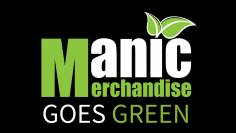|
Sources of
impact
|
Objectives
|
Policies and Targets
|
Indicators
|
Actions (2009)
|
|
Travel by Manic Merchandise staff
|
To minimise carbon emissions and other impacts by avoiding unnecessary business travel.
To minimise the impact of necessary staff business travel by maximising the use of public transport, walking or cycling.
To encourage car sharing scheme to minimise carbon emissions
To offset the residual carbon emissions from business travel.
|
80% of the number of journeys by staff on company business by public transport, walking or cycling.
All travel to mainland Europe within a 1000km radius (excluding Scandinavia) will normally be undertaken by train.
50% increase in car sharing by staff.
Increase year on year the proportion of replacements to out of office meetings (e.g. teleconference, video conference and web cam) compared with the total number of meetings.
|
Number of business journeys by mode / distance travelled by mode per annum.
The ratio of distance (km) travelled by train to distance travelled by air (km).
Amount of carbon emissions offset per annum.
Number of replacements to out of office meetings (e.g. teleconference, video conference and web cam) per annum.
|
Record all lengths of business travel by mode.
Record the number of out of office meetings and alternatives (teleconference / video conference / web cam) where it is a replacement for meetings.
Develop a target for reducing carbon emissions from air travel per full time employee.
Investigate becoming carbon neutral.
Produce advice sheet for employees.
|
|
Office energy consumption
|
To minimise energy consumption.
To minimise the impact of the energy used by supporting renewable energy sources
|
All lighting to use low energy bulbs.
As office equipment is replaced, purchase the most energy efficient equipment when compared with alternatives of a similar cost and performance.
Maximise the proportion of electricity used from renewable energy sources, whilst also supporting investment in new renewable energy schemes.
|
Total Manic Merchandise office energy use and average per FTE and £ turnover.
Proportion of total Flacon electricity used from renewable sources.
|
Ensure computer equipment is set to go to standby when left for a short period and equipment turned off at night where practical.
Install thermostat for heating, if practicable.
Develop target for the proportion of electricity from renewable energy sources.
Produce advice sheet for employees.
|
|
Paper
|
To minimise paper use
|
Total paper consumption per FTE will not increase.
|
Total direct paper consumption and average per FTE and £.
|
Baseline for monitoring paper use to be established and paper use.
|
|
Consumption
|
To minimise the impacts of producing the paper used
|
All direct paper consumption will be on 100% recycled paper.
50% of paper consumption through print orders will be on recycled paper.
All new printers to be capable of duplex printing.
Where possible reduce the paper we are using by 20%.
|
Establish a base line cost for the amount of paper we use. Aim to cut this by 20% in volume.
|
Monitor.
Produce advice for employees.
|
|
Waste Generation
|
To minimise the amount of waste generated.
To maximise the proportion of waste recycled.
|
All waste office paper and toner cartridges will be recycled.
All glass, cans and plastic bottles will be recycled.
Reduce office waste that is not recycled by 50%.
All redundant office equipment will be sold or donated for reuse or recycled.
As office equipment is replaced, purchase the most resource efficient equipment (e.g. toner waste etc) compared with alternatives of a similar cost and performance.
|
Establish the number / weight of bags of rubbish generated per annum and average per FTE and £ turnover.
Number/ weight of bags of paper recycled per year.
|
Develop system to record waste generated.
|
|
Water Use
|
To minimise office water use.
|
As equipment is replaced, purchase the most water efficient equipment when compared with alternatives of a similar cost and performance.
|
|
Review measures that could be taken to reduce water use
Produce advice sheet for employees.
|
|
Working Environment
|
To reduce the impact of emissions / toxins from office equipment.
|
|
|
Create a healthy working environment
– including having plants in the office.
Low level lighting and air conditioning available in summer.
|
|
Consumption of other products
|
To reduce the impacts of beverages purchased and to support fair-trade.
To reduce the impact of products purchased (including product miles).
|
100% of tea and coffee purchased fair-trade.
All waste bags to be made from recycled and / or biodegradable plastic.
Use re-used office equipment where practical.
|
|
|
|
Local
community
|
To support local businesses and contribute to our local community and the environment.
|
Purchase products and use suppliers locally wherever practical.
|
Number of person days of voluntary work undertaken per year.
|
Record number of days of voluntary work.
|
